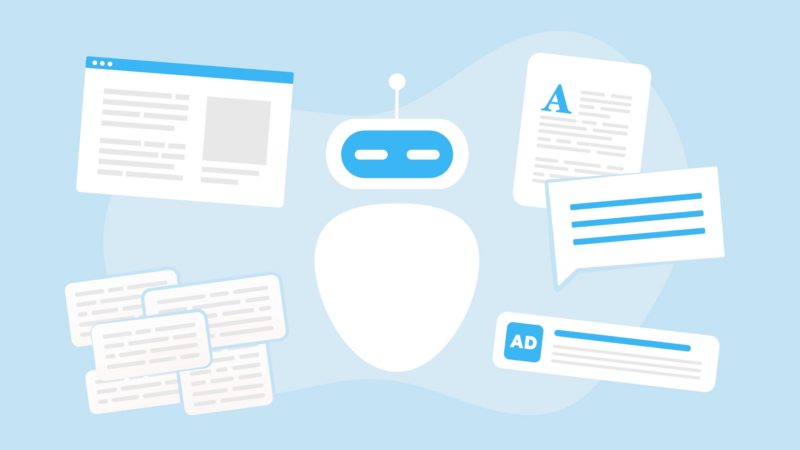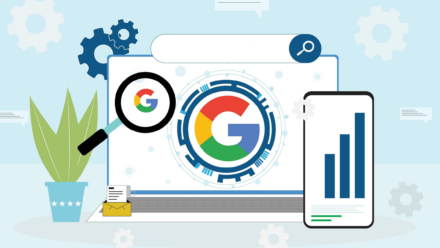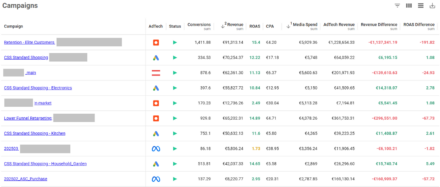How Generative AI is Impacting SEO

The digital marketing world has been ablaze with all things AI over recent months.
It all started with the launch of ChatGPT, which sparked the conversation of how can we use AI to improve digital marketing activity.
While AI has lots of uses, it is somewhat being hailed as silver bullet solution for everything, which is not entirely true.
In this blog, I’ll be taking a look at how you can leverage AI in your SEO activity, as well as looking at the limitations of existing AI tools.
What is Generative AI?
Before we look at how we use Generative AI, it’s imperative to know what it actually is we’re dealing with.
Firstly, what is AI?
Artificial Intelligence (AI) is an umbrella term for computer software that mimics human cognition in order to perform complex tasks and learn from them.
What we’re currently using is known as Generative AI, which is a type of Artificial Intelligence that can create new content, such as:
- text
- images
- audio
How does Generative AI work?
Generative AI models learn the patterns and structure of their input training data, and then generate new data that has similar characteristics.
Sounds impressive, right?
While it is, we have to remember that this essentially means that we’re using a computer software designed to try and predict the next output in a sequence, based on what it already knows.
This isn’t a million miles away from predictive text on your phone.
Generative AI (or Large Language Models) have all been trained on massive volumes of data which have been ingested by the software.
Following this, a statistical layer is put on top which pulls the answers to the prompts that you enter – known as prompt engineering.
Throughout the process, there is a continuous feedback loop (normally requiring human input) to determine and rate the quality of the output from the machine.
Even with this, we do need to consider some limitations of Generative AI, including Brain Fog and Hallucinations, which can negatively affect the output depending on the prompts.
How can we use AI for SEO?
There are a number of uses of AI to help support with your SEO activities, most of which are designed to improve the speed at which we can get from the research phase to drawing insights and making recommendations.
Firstly, using AI tools can allow you to increase your efficiency and speed up turnaround times through things such as:
- Brainstorming ideas
- Writing parts of first drafts for articles
- Revising existing content
- Generating meta tags and product descriptions
- Keyword research
Using good quality input prompts, you will be able to create first drafts and early examples of work which can then be built upon and enhanced through human input.
AI is going to be more and more a part of search, with both Bing and Google doubling down on integrating it into their platforms.
We will need to watch and see what develops in this space, but knowing that more and more AI driven results are coming, we will need to constantly adapt to drive the traffic and performance we need.
Limitations of AI for SEO
While we can use AI to support with the above activities, we have to be mindful of the limitations of AI in its current form, and particularly the limitations presented by ChatGPT.
One of the core limitations of ChatGPT is the accuracy of its information.
While this has steadily been improving since the launch of ChatGPT v2, through to GPT4 – it is still capping out at around 80% accuracy at best.
This is an even more worrying figure when we think that this is on the areas where it has the most amount of information.
Where prompts are looking at more niche information or questions, this accuracy dwindles even further.
Therefore, any output with require significant QA before being used.
On top of this there are other limitations including:
- Built-in Bias
- Areas where the input information favours one side of an argument over bi-partisan, factual output.
- Current Events
- ChatGPT is reliant on dated information and is currently not connected to the internet. This means it is not up to date with current events, which means any changes to old data, will not be reflected in its output.
- Originality and Plagiarism
- As it is a trained model, it is basing its output on information from other sources. This can lead to work that is not entirely unique and could border on plagiarism. This is especially true in Image AI generation.
What is needed to drive SEO performance in an AI world?
AI is here to stay, and its going to be about how well you can integrate it into your day to day operations to improve efficiency that will bare the biggest returns.
However, it alone will not drive SEO performance. A few areas you need to keep front and centre are:
- E-E-A-T like never before
- Google’s Helpful Content update has placed huge impetus on the need for authority and expertise in content. Using real experts to provide genuine insight and unique content is going to continue to be incredibly important. AI can help with speeding up the process, but it will not replace true experts.
- Generative AI
- Leverage it, but bear in mind it is a tool for success, not a silver bullet. Keep its pitfalls in mind and scrutinise it thoroughly.
- Generative Search Engines
- They are not here yet, but they are coming. What their impact will be we do not know, but we need to be ready to pivot. Keep up to date with all of the new around it and adapt accordingly.
If you would like to learn more about how QueryClick could support you in integrating AI into your SEO strategy, get in touch with us today.
Find out what makes QueryClick different.
Own your marketing data & simplify your tech stack.
Have you read?
Chrome’s announcement on dropping cookie opt-in last month closed the door on a 5 year saga for marketers. But what is the landscape like in 2025 for cookie-based measurement?
Generative AI is transforming the way that marketers plan and assemble content for their Paid Ads. As big platforms like Google, Meta and TikTok increasingly build the tools needed to...
In a surprising move that has sparked heated debate, Mark Zuckerberg announced on his Instagram that Meta will be reducing its levels of censorship and in particular fact-checking on its...



